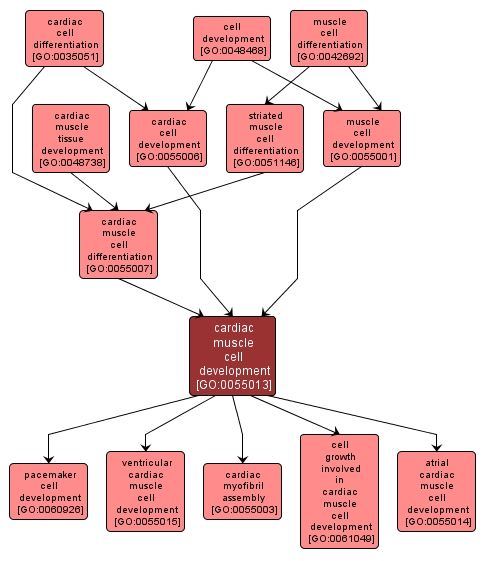GO TERM SUMMARY
|
| Name: |
cardiac muscle cell development |
| Acc: |
GO:0055013 |
| Aspect: |
Biological Process |
| Desc: |
The process whose specific outcome is the progression of a cardiac muscle cell over time, from its formation to the mature state. |
Synonyms:
- heart muscle cell development
- cardiomyocyte cell development
|
|

|
INTERACTIVE GO GRAPH
|














